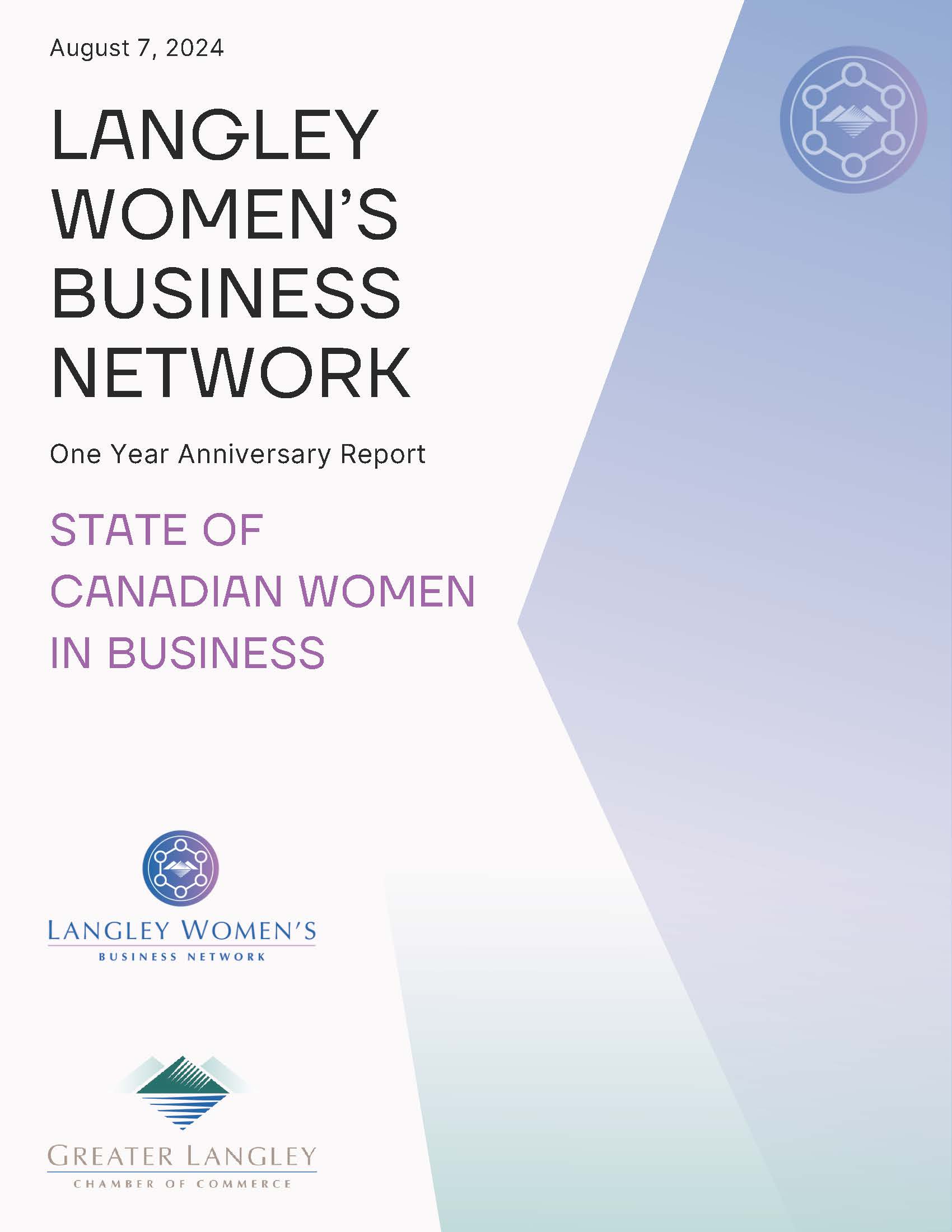Langley Women’s Business Network Releases "State of Canadian Women in Business" Report
Langley Women’s Business Network Releases "State of Canadian Women in Business" Report

The Langley Women’s Business Network (LWBN) has released its "State of Canadian Women in Business" research report to mark its one year of service to women in the local business community.
The research report provides valuable insights into how far we’ve come on gender parity in our business community, highlighting both the progress made and the challenges that remain in achieving gender equity in senior management roles, business ownership, and other key economic metrics. Read the full report here >
Key Findings:
- Women in Leadership: While women have almost reached parity in overall employment (48% in 2023), their representation in senior management positions in the private sector has shown slow progress. BC leads Canada with 39% of senior management roles occupied by women, compared to the national average of 35.6%, but at this pace gender parity in management will not be reached for decades.
- Business Ownership: Less than 1 in 5 private businesses in Canada are majority-women-owned, with significant disparities across sectors. Retail trade (26.2%) and professional services (20%) have the highest rates of female ownership, while extractive industries (5.8%) and construction (3.7%) are at the lower end.
- Economic Contribution: Women’s contribution to the Canadian GDP is estimated at $637 billion. Achieving gender parity could potentially add an additional $150 billion to the national economy, the equivalent of the combined economies of Manitoba, Saskatchewan and Prince Edward Island.
The report also reviewed research and literature to determine common barriers or obstacles to women’s full representation in business. The report identified three key challenges:
- Work-Life Balance: Women continue to face disproportionate challenges in balancing work and family responsibilities, impacting their economic success. On average, women work 1.2 hours more per day than men.
- Access to Financing: Women-owned businesses often encounter difficulties in securing financing and are more likely to self-fund their ventures. When they do request financing, their approval rates and funding amounts are significantly lower than those for men.
- Mentorship and Networking: Access to networks and mentorship remains crucial for women entrepreneurs, helping shrink knowledge gaps and exposing individuals to role models, contacts, clients and more.
“Supporting women means recognizing both their current representation and the barriers they face. The insights from this report will shape our future actions as we advocate for women across all sectors and stages of business,” said Laurie Shopland, Chair of the LWBN Steering Committee.
“I’m very proud of the Langley Women’s Business Network for spearheading this initiative,” added Cory Redekop, CEO of the Greater Langley Chamber of Commerce. “By identifying ongoing challenges women in business face and some potential solutions, we are moving towards a more inclusive and supportive business environment for all.”
The Langley Women’s Business Network and the Greater Langley Chamber of Commerce commit to using this report as a foundation for further support, advocacy, and education to advance the interests of women in business.
Read the full report here or click the image below >

